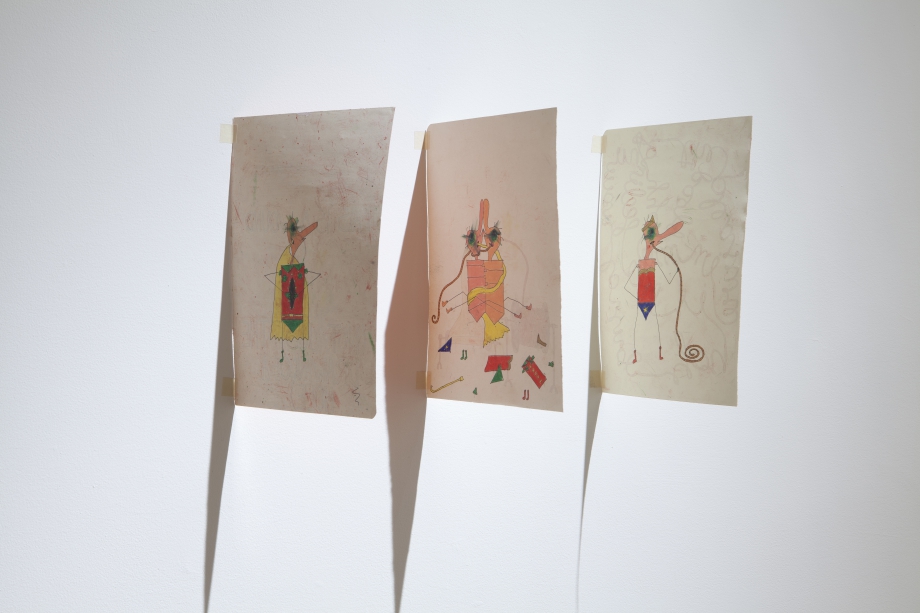A.J. Samuels, ARTFETCH, September 2013

Camilo Restrepo’s work is violent. The violence is almost real. The reality gap of the work’s violence also creates an anxiety–driven tension. There is a lack of tangible consequences, political impact or even pain in the work that makes the drawings psychological, or rather representational of a psychological state. They map out an American nervous system shaking, interconnected and tangled, as nerves always are, only here they are deeply dysfunctional: a body or subconscious punctured, submersed, flattened, dreamt, carved and stretched. What is hidden is as important as what is shown.
The drawings aspire to sculpture, because they try, with utmost intention, to become more dimensional, more bodily: paper as waxy skin, ink as thinning blood – murky blue–black pools have already dried up on the cork floor of Steve Turner’s upstairs gallery. A crime seems to have happened: a crime against paper, moleskin, drawing; or a crime against the inadequacy of art to be real, actual. Does this, then, make the artist victim too?
The title of the show reflects the anxious attempts of the artist to use drawing politically, to instantiate as real a visceral violence: This is a Wound, Not Just the Drawing of A Hole. The distance: between a real wound and its representation, between art and what it seeks to show us about the world; is the tense frustration, is the breakdown, is the intricate fanaticism, fantasy and obsession of a socially conscious artist. And here it finds a highly successful manifestation.
But what if Camilo Restrepo actually felt that sense of violence, violation, pain? Then the wound is real: if only psychologically, and maybe that is enough. When the experience of violence is felt intensely through an artist, like a shaman, they are able to translate and describe it as an aspect of social reality. Where an individual experience resonates louder than its particulars, it opens up insight into the everyday. What we see here is an amplification of the kind of subconscious violence we all endure daily. Restrepo highlights the type of pervasive, psychological violence we suffer but may never be aware of. Unmissable.
Click here to view the full article.

